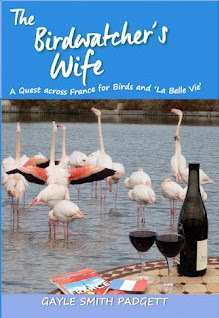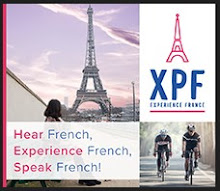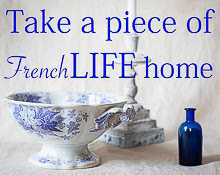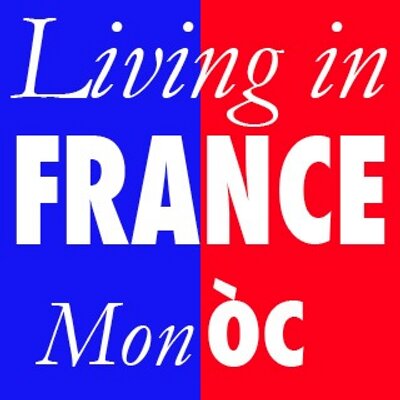 Painter Julian Paltenghi is showing works from his studio at the restaurant Le Theatre, at 4 rue Eugene Pelletan, Tarascon, until March 30th. The show opens Friday Feb. 27 with a vernissage beginning at 7 p.m. and all are welcome. Le Theatre is open evenings only, from 7 p.m., and is closed Thursdays and Sundays. The restaurant is offering a 15€ dinner special for those who attend the vernissage and would like to stay on. To reserve, call 04-90-91-41-44 or 06-08-96-19-66. For info on Julian or his work: www.julianpaltenghi.com, 06-85-35-58-04.
Painter Julian Paltenghi is showing works from his studio at the restaurant Le Theatre, at 4 rue Eugene Pelletan, Tarascon, until March 30th. The show opens Friday Feb. 27 with a vernissage beginning at 7 p.m. and all are welcome. Le Theatre is open evenings only, from 7 p.m., and is closed Thursdays and Sundays. The restaurant is offering a 15€ dinner special for those who attend the vernissage and would like to stay on. To reserve, call 04-90-91-41-44 or 06-08-96-19-66. For info on Julian or his work: www.julianpaltenghi.com, 06-85-35-58-04.
Thursday, February 26, 2009
Don't Miss..
 Painter Julian Paltenghi is showing works from his studio at the restaurant Le Theatre, at 4 rue Eugene Pelletan, Tarascon, until March 30th. The show opens Friday Feb. 27 with a vernissage beginning at 7 p.m. and all are welcome. Le Theatre is open evenings only, from 7 p.m., and is closed Thursdays and Sundays. The restaurant is offering a 15€ dinner special for those who attend the vernissage and would like to stay on. To reserve, call 04-90-91-41-44 or 06-08-96-19-66. For info on Julian or his work: www.julianpaltenghi.com, 06-85-35-58-04.
Painter Julian Paltenghi is showing works from his studio at the restaurant Le Theatre, at 4 rue Eugene Pelletan, Tarascon, until March 30th. The show opens Friday Feb. 27 with a vernissage beginning at 7 p.m. and all are welcome. Le Theatre is open evenings only, from 7 p.m., and is closed Thursdays and Sundays. The restaurant is offering a 15€ dinner special for those who attend the vernissage and would like to stay on. To reserve, call 04-90-91-41-44 or 06-08-96-19-66. For info on Julian or his work: www.julianpaltenghi.com, 06-85-35-58-04.
DEAL DU JOUR
 Once a summer home for the Avignon Popes, La Maison, in a 600-year-old mas just minutes from St. Remy, is quintessential Provence. Thirteen sun-drenched guestrooms (no two alike) have soft color-washed walls, French country antiques, subtle Moroccan touches (lanterns, tiles) and stunning mountain or garden views. In the dining room, chef Christian Peyre turns out highly regarded modern French/Provencal fare, based on local, seasonal ingredients. Now he and his partner, Eric Marty, are offering two great ways to enjoy La Maison at a discount. On Friday evenings in March, order two truffle menus at 119€ each and stay the night free. Or book a room for one night anytime before April 5th and get a second night free.
La Maison--Domaine de Bournissac
Paluds de Noves (between Noves and St. Remy)
04-90-90-25-25
bournissac@wanadoo.fr
www.lamaison-a-bournissac.com
Once a summer home for the Avignon Popes, La Maison, in a 600-year-old mas just minutes from St. Remy, is quintessential Provence. Thirteen sun-drenched guestrooms (no two alike) have soft color-washed walls, French country antiques, subtle Moroccan touches (lanterns, tiles) and stunning mountain or garden views. In the dining room, chef Christian Peyre turns out highly regarded modern French/Provencal fare, based on local, seasonal ingredients. Now he and his partner, Eric Marty, are offering two great ways to enjoy La Maison at a discount. On Friday evenings in March, order two truffle menus at 119€ each and stay the night free. Or book a room for one night anytime before April 5th and get a second night free.
La Maison--Domaine de Bournissac
Paluds de Noves (between Noves and St. Remy)
04-90-90-25-25
bournissac@wanadoo.fr
www.lamaison-a-bournissac.com
Labels:
FOOD AND RESTAURANTS,
HOTELS
Sunday, February 15, 2009
The Fight to Save Cezanne's Countryside
 The family of Paul Cézanne is “horrified” to learn that the SNCF is thinking of building an ultra-fast train track at the foot of Mount Sainte-Victoire, which Cezanne painted 87 times and has come to symbolize his genius.
“I feel under attack,” Philippe Cézanne, the great grandson of the famous post-impressionist, told The Guardian in a story that appears today. “The soul of Cézanne is in these hills. It's still quite magical, and all the foreigners who come to the region are surprised to find the landscapes as the artist saw them."
Philippe Cézanne is lending his weight to an increasingly vocal campaign to stop a new stretch of fast track from running directly from Aix to Nice, through the beautiful Provence arrière pays where Cézanne had his family home.
The new stretch is part of the so-called LGV PACA line, designed to reduce travel time from Paris to Nice, which currently takes 5.5 hours. The new line is set to open by 2020.
The most direct "northern" route, which would take around four hours, would cut through the Provence hinterland along the Arc valley, past the south side of Mount Sainte-Victoire to Nice.
A slower, costlier "southern" alternative would skirt the Cézanne area and pass through the coastal cities of Marseille and Toulon. It would take about 20 minutes more and increase the price tag by up to €3.5 billion.
Last year, President Nicolas Sarkozy spoke out in favor of the "southern" route but protesters claim the government has changed its mind and now favors the cheaper, more direct route. Last month, a group of 5,000 gathered at the Aix station to protest the reported decision. Their banners read: "Sainte-Victoire, you will tremble," and "Help Cézanne, they have gone crazy". Among the protesters were winegrowers from the Sainte-Victoire appellation, who say their vineyards will be ruined by the new line.
Earlier this week, 86 local politicians traveled to Paris to meet the environment minister, Jean-Louis Borloo. Their chief spokesman was the Aix-en-Provence mayor Maryse Joissains Masini.
Cézanne used trains to get from Paris to Aix. But when a small station was opened at the foot of Jas de Bouffan, his family home, he “vented his anger in brushstrokes,” says Telegraph France correspondent Henry Samuel. Cezanne’s 1873 work La Tranchée avec la Montagne Saint-Victoire (The Cutting), depicts Mount Sainte-Victoire in the distance, and, in the foreground, the local railway line through the hills.
"The flanks of the ruptured hills are painted in almost a blood red. He considered it to be an open wound in the heart of the landscape, an offence to nature," said Michel Fresset, director of the Atelier Cézanne in Aix.
Read the full article here: http://www.telegraph.co.uk/news/worldnews/europe/france/4615608/Cezanne-family-furious-at-new-Provence-railway.html
And read Henry Samuel's blog post here: http://blogs.telegraph.co.uk/henry_samuel/blog/2009/02/14/czanne_heritage_under_threat_says_great_grandson
The family of Paul Cézanne is “horrified” to learn that the SNCF is thinking of building an ultra-fast train track at the foot of Mount Sainte-Victoire, which Cezanne painted 87 times and has come to symbolize his genius.
“I feel under attack,” Philippe Cézanne, the great grandson of the famous post-impressionist, told The Guardian in a story that appears today. “The soul of Cézanne is in these hills. It's still quite magical, and all the foreigners who come to the region are surprised to find the landscapes as the artist saw them."
Philippe Cézanne is lending his weight to an increasingly vocal campaign to stop a new stretch of fast track from running directly from Aix to Nice, through the beautiful Provence arrière pays where Cézanne had his family home.
The new stretch is part of the so-called LGV PACA line, designed to reduce travel time from Paris to Nice, which currently takes 5.5 hours. The new line is set to open by 2020.
The most direct "northern" route, which would take around four hours, would cut through the Provence hinterland along the Arc valley, past the south side of Mount Sainte-Victoire to Nice.
A slower, costlier "southern" alternative would skirt the Cézanne area and pass through the coastal cities of Marseille and Toulon. It would take about 20 minutes more and increase the price tag by up to €3.5 billion.
Last year, President Nicolas Sarkozy spoke out in favor of the "southern" route but protesters claim the government has changed its mind and now favors the cheaper, more direct route. Last month, a group of 5,000 gathered at the Aix station to protest the reported decision. Their banners read: "Sainte-Victoire, you will tremble," and "Help Cézanne, they have gone crazy". Among the protesters were winegrowers from the Sainte-Victoire appellation, who say their vineyards will be ruined by the new line.
Earlier this week, 86 local politicians traveled to Paris to meet the environment minister, Jean-Louis Borloo. Their chief spokesman was the Aix-en-Provence mayor Maryse Joissains Masini.
Cézanne used trains to get from Paris to Aix. But when a small station was opened at the foot of Jas de Bouffan, his family home, he “vented his anger in brushstrokes,” says Telegraph France correspondent Henry Samuel. Cezanne’s 1873 work La Tranchée avec la Montagne Saint-Victoire (The Cutting), depicts Mount Sainte-Victoire in the distance, and, in the foreground, the local railway line through the hills.
"The flanks of the ruptured hills are painted in almost a blood red. He considered it to be an open wound in the heart of the landscape, an offence to nature," said Michel Fresset, director of the Atelier Cézanne in Aix.
Read the full article here: http://www.telegraph.co.uk/news/worldnews/europe/france/4615608/Cezanne-family-furious-at-new-Provence-railway.html
And read Henry Samuel's blog post here: http://blogs.telegraph.co.uk/henry_samuel/blog/2009/02/14/czanne_heritage_under_threat_says_great_grandson
Sunday, February 8, 2009
GRAPE EXPECTATIONS

Visiting the famous wine villages of the Southern Rhone Valley-- Châteauneuf-du-Pape, Gigondas, Vacqueyras and others--can be a bit daunting if you don’t know the area, don’t know much about wine or don’t know which labels you love. Some tasting rooms are open to the public during normal hours; others require an appointment. And some vineyards don’t offer tasting at all. The Southern Rhône appellation is based on a four-level quality hierarchy and produces a wide range of wines from 18 grape varieties, in soil ranging from soft sand to hard rock. Where to begin and how to make the most of your time? Châteauneuf alone has 250 estates.
A day out with Olivier is a crash course in the concept of terroir, the combination of soil, microclimate and topography that makes every French wine unique. Terroir is why two wines made from the same grape on adjacent properties can taste vastly different…and why the choicest parcels of grape-growing land here sell for upwards of €400,000 per hectare. Along the way, you’ll discover the different aging techniques, the differences between French and New World winemaking, the subtleties of Rhone grape varieties, the basics of organic and biodynamic winemaking and why tough growing conditions can yield some of the best wines. And, of course, you’ll taste some of the region’s finest labels.
“Most Rhône vignerons will tell you that their wines are ‘made in the vineyard and not in the cellar,’” Olivier says, “and are a product of hard work and their unique terroir. For this reason, I like to spend a good portion of my tours amongst the vines. You can only truly appreciate the soul of a great French wine by visiting the vineyard in which it has its origins.”
Olivier works with a group of 30 or so different vineyards, making his selection based on the location and beauty of the domaine, the quality of the wines and how they compare and contrast. I did a day-tour with Olivier last week and found it fun and extremely worthwhile. He’s charming, knowledgeable, funny and patient…and moves things along at a perfect clip.
Born and raised in London London France Provence
A half day with Olivier costs 35€ or 40€ per person (two domaines, price depends on the villages visited, minimum fee per tour is 95€). A full day (four domaines, with a break for lunch) costs €70 per person, with a 195€ per tour minimum. While Olivier normally meets you at a specified location, he can also arrange pick up at your home, rental villa or hotel.
Now expanding his three-year-old business, Olivier also hosts a full-day cooking class and wine tour in conjunction with Cuisine de Provence (cuisinedeprovence.com), a chauffered wine-and-culture tour, and wine tastings in hotels and private homes. For tour operators, bike and walking tour companies and groups of all sizes, he’ll arrange anything from a two-hour “discovery” to a full-on full-week tour. This year, he’s launching a Winery Holiday with accommodation and wine activities at a domaine in the hills above Seguret and a Walking Wine holiday in collaboration with a professional mountain guide. For more info: www.wine-uncovered.com, Olivier.hickman@wine-uncovered.com, 06-75-10-10-01.
Labels:
CHATEAUNEUF-DU-PAPE,
WINE AND VINEYARDS
Sunday, February 1, 2009
In Memory of Marcel Guillot (1915-2009)
 My next-door neighbor died yesterday, aged 94. After suffering a long time with bronchitis—he hadn’t left the house in three weeks—he finally agreed to go to the hospital; I can only imagine how hard his relatives pushed to make that happen. Fiercely independent, he’d lived happily on his own since his wife died many years ago. The couple had no children but Marcel had lots of attentive family—the Guillots are a big clan who’ve been in St. Remy forever.
My next-door neighbor died yesterday, aged 94. After suffering a long time with bronchitis—he hadn’t left the house in three weeks—he finally agreed to go to the hospital; I can only imagine how hard his relatives pushed to make that happen. Fiercely independent, he’d lived happily on his own since his wife died many years ago. The couple had no children but Marcel had lots of attentive family—the Guillots are a big clan who’ve been in St. Remy forever.Our homes share a common wall and were obviously part of the same mas, back in the day. Working at my desk, I could hear every time Marcel’s old wall-mounted dial phone rang, followed by his loud “Allo?” Each evening at 11 p.m. I’d hear the TV go off and I’d know he’d soon be climbing the stairs to bed. I could have set my watch by Marcel’s routine. He spent his mornings at Brasserie du Commerce, betting a few euros on horses, reading the paper and chatting with friends. He drove himself to lunch at the nursing home every day at 11:15. Then he’d come home for a siesta and leave the house at 3 p.m. sharp to play boules with his gang. He’d be home by 6 p.m. most nights to make dinner, watch TV…and head for bed around 11 p.m.
Marcel’s little white car, straw hat in the back, was a neighborhood fixture just like he was. He drove fast, which always amused me. Can you imagine still driving at 94? He couldn’t imagine otherwise.
When I’d travel home to the States, Marcel would occasionally call to check in. I found it hard to understand him, with his thick Provencal accent, but the calls touched me more than I can say. When I returned to France, he’d show up at my door with cake and Champagne. I’d find out later that he’d fixed my gate, raked my leaves and did who knows what all else without letting me know or looking for thanks. He told me once, years ago, that he’d always wanted to see New York—and we agreed, with a wink, that we’d go there together one day. (I can’t be sure but I believe he said he’d never been out of the country.)
He’d become sullen when I’d start dating someone—they were never good enough for me--and warm up immediately when the relationship ended. When a new guy came around, the questions were always the same: Who are his parents? What’s the family name? Does he have a job?
One year I asked if he’d feed my cat while I was away. He didn’t want to do it but he grudgingly agreed, on one condition: he’d feed her outside only. “Animals don’t belong in the house,” he said. When I returned a few weeks later, I spied food and water bowls on his living room floor and my cat sleeping under a chair in the corner. “What’s up with the cat in the house?” I asked. “She’s my little friend,” he said, giving her a squeeze.
Over the years Marcel let me help him harvest the grapes from the old vines on his terrace. We’d haul out the ladder, ready the boxes and scissor a surprising number of fat clusters from the small trellis overhead. Early on it was he who climbed the ladder; later it was me. When his nephew showed up one year to do the harvest, I felt surprisingly hurt.
On hot summer evenings, I’d step outside to catch a breeze and Marcel would sometimes join me. We’d sit together in my garden, enjoying the stars and the night air. We’d talk about our lives, as much as our different languages would allow, and we’d congratulate ourselves on having the good fortune to be here in Provence, to be happy and healthy and have good people close by.
One year at holiday time I "elfed" Marcel online (www.elfyourself.com). We laughed so hard I thought one or both of us might actually keel over.
Marcel was a great neighbor and I hope he felt the same way about me. He was kind, generous, smart, loving and full of life. He had a terrific sense of humor and a nice sense of style. He would have been a wonderful father and I’m sure he was a great husband. I feel blessed to have had him in my life for the nine years I’ve been in St. Remy.
Rest in peace, my friend.
Labels:
LIFE IN PROVENCE,
MISCELLANEOUS,
ST. REMY
Subscribe to:
Comments (Atom)





























































.jpg)








